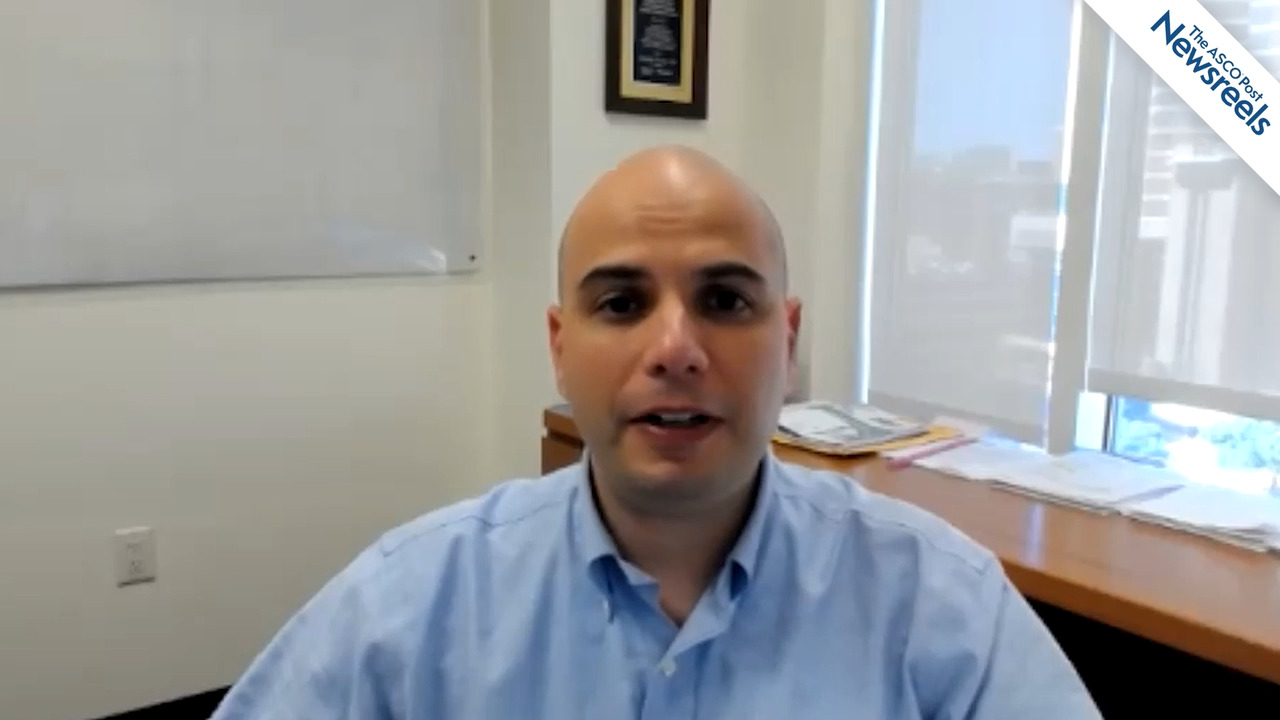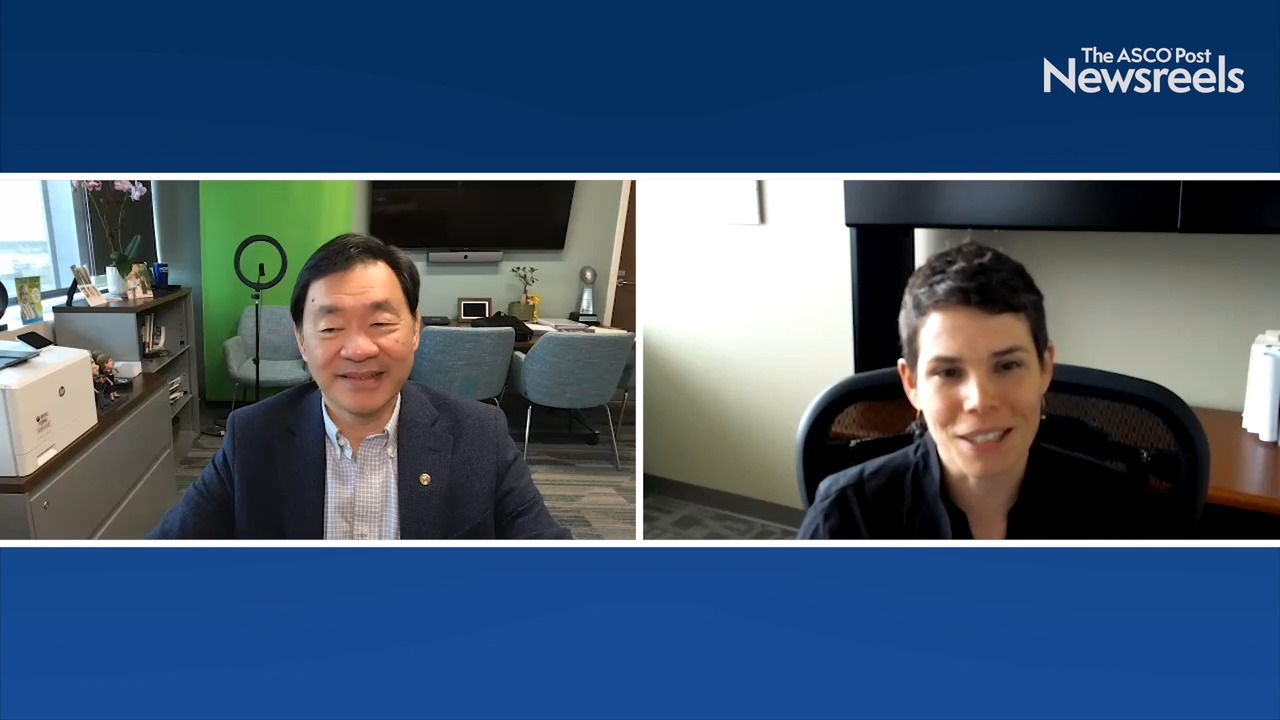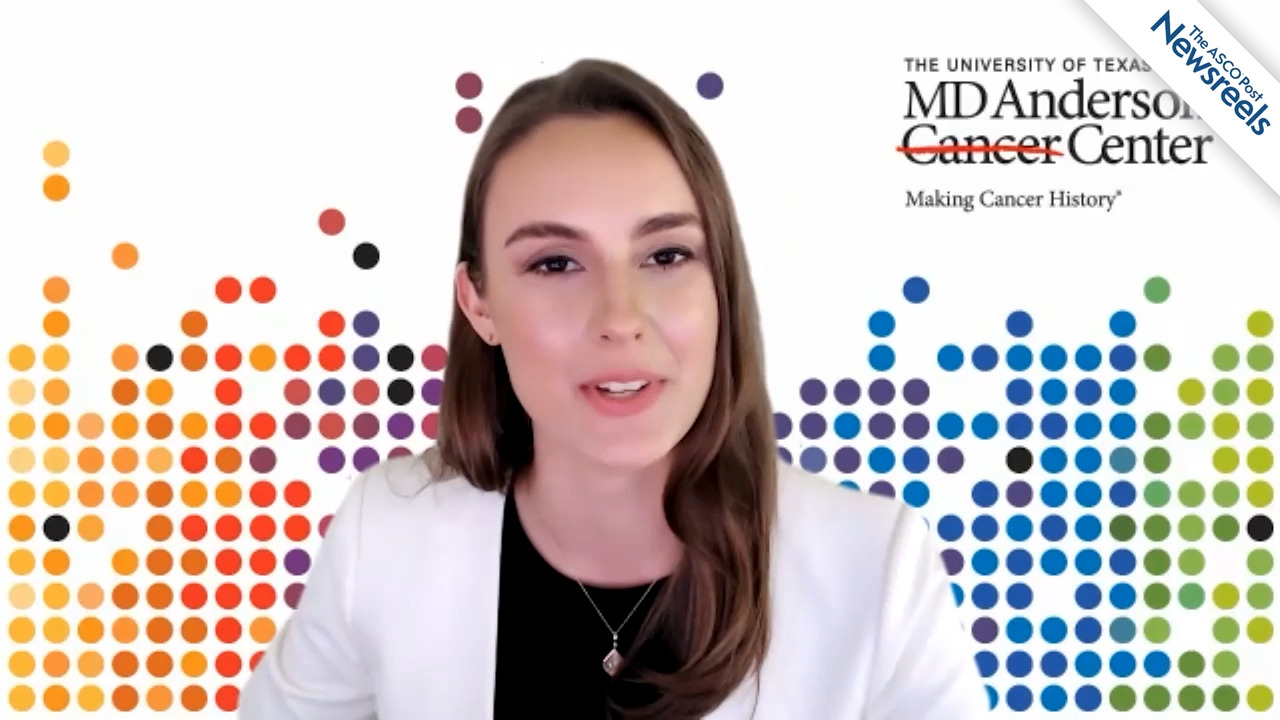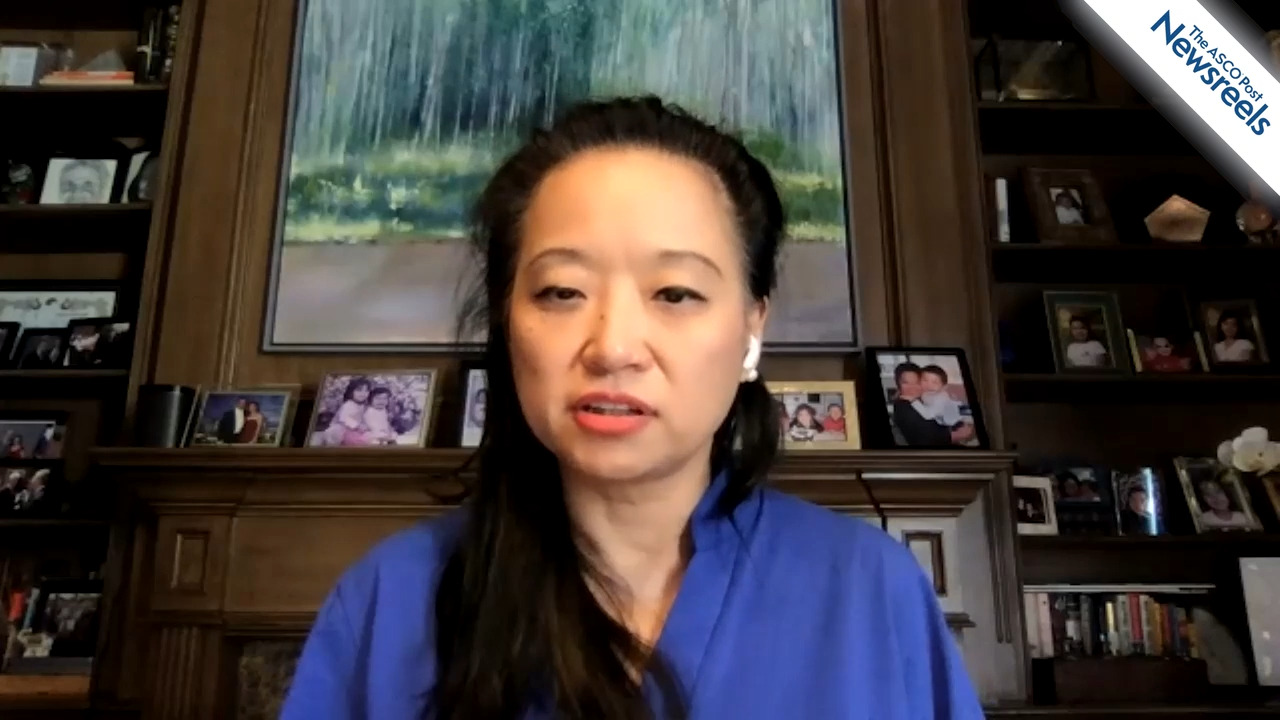Sean Khozin, MD, MPH, on Delivering Precision Cancer Care in the Era of Digital Medicine
SITC 2021
Sean Khozin, MD, MPH, of CancerLinQ, discusses the therapeutic advances that have made cancer care more targeted, even as real-world patient outcomes lag behind those reported in clinical trials. Dr. Khozin makes the case for the use of digital decision support tools to advance precision at the point of care.
The ASCO Post Staff
Mehmet Altan, MD, of The University of Texas MD Anderson Cancer Center, discusses findings from a phase Ib dose-escalation study, which showed early evidence of activity for NKTR-255, an investigational IL-15 receptor agonist, plus cetuximab in patients with solid tumors. Treatment appeared to lead to expansion and proliferation of NK and CD8+ cells (Abstract 957).
The ASCO Post Staff
Kim A. Reiss, MD, of the University of Pennsylvania, discusses results of a phase I trial of a CAR-M engineered macrophage cancer therapy, known as CT-0508, for patients with solid tumors that overexpress HER2. CAR-M, designed to exploit the natural role of macrophages to initiate an antitumor response, is currently under study at multiple clinical sites (Abstract 951).
The ASCO Post Staff
Patrick Hwu, MD, of Moffitt Cancer Center and President of the Society for Immunotherapy of Cancer (SITC), and Mary Dean, JD, CAE, SITC Executive Director, discuss the organization’s mission, strides made in cancer immunology, meeting the challenge of immunoresistance, and the new SITC app for clinical practice guidelines. This app places a useful tool in the hands of health-care providers, one that can be continually updated as the science evolves.
The ASCO Post Staff
Stephanie T. Schmidt, PhD, of The University of Texas MD Anderson Cancer Center, discusses the first integrated examination of the immunomodulatory effects of neoadjuvant chemotherapy, nivolumab, and nivolumab plus chemotherapy in resected non–small cell lung cancer (Abstract 962).
The ASCO Post Staff
Lynda Chin, MD, of the University of Texas, Austin Dell Medical School and Apricity Health, discusses precision medicine, barriers to its progress, and the challenges that must be met to facilitate better outcomes for patients. Building evidence and trust is key, Dr. Chin explains, as is developing an infrastructure that allows more clinicians to take part in the process.





